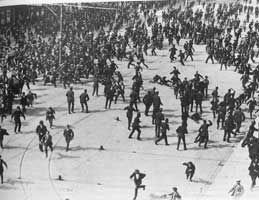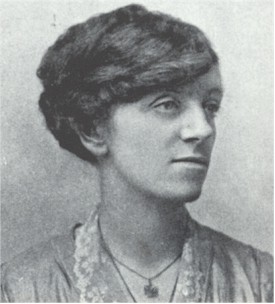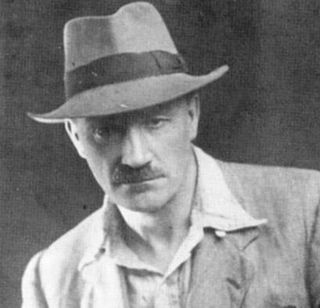Related Research Articles

Syndicalism is a revolutionary current within the labour movement that, through industrial unionism, seeks to unionize workers according to industry and advance their demands through strikes and other forms of direct action, with the eventual goal of gaining control over the means of production and the economy at large through social ownership.

The Industrial Workers of the World (IWW), whose members are nicknamed "Wobblies", is an international labor union founded in Chicago in 1905. The nickname's origin is uncertain. Its ideology combines general unionism with industrial unionism, as it is a general union, subdivided between the various industries which employ its members. The philosophy and tactics of the IWW are described as "revolutionary industrial unionism", with ties to socialist, syndicalist, and anarchist labor movements.

James Connolly was a Scottish-born Irish republican, socialist, and trade union leader, executed for his part in the 1916 Easter Rising against British rule in Ireland. He remains an important figure both for the Irish labour movement and for Irish republicanism.

The Independent Labour Party (ILP) was a British political party of the left, established in 1893 at a conference in Bradford, after local and national dissatisfaction with the Liberals' apparent reluctance to endorse working-class candidates. A sitting independent MP and prominent union organiser, Keir Hardie, became its first chairman.

The Revolutionary Communist Group (RCG) is a communist, Marxist and Leninist political organisation in the United Kingdom.

The Irish Citizen Army, or ICA, was a small paramilitary group of trained trade union volunteers from the Irish Transport and General Workers' Union (ITGWU) established in Dublin for the defence of workers' demonstrations from the Dublin Metropolitan Police. It was formed by James Larkin, James Connolly and Jack White on 23 November 1913. Other prominent members included Seán O'Casey, Constance Markievicz, Francis Sheehy-Skeffington, P. T. Daly and Kit Poole. In 1916, it took part in the Easter Rising, an armed insurrection aimed at ending British rule in Ireland.

Anarchism in the United Kingdom initially developed within the religious dissent movement that began after the Protestant Reformation. Anarchism was first seen among the radical republican elements of the English Civil War and following the Stuart Restoration grew within the fringes of radical Whiggery. The Whig politician Edmund Burke was the first to expound anarchist ideas, which developed as a tendency that influenced the political philosophy of William Godwin, who became the first modern proponent of anarchism with the release of his 1793 book Enquiry Concerning Political Justice.

James Larkin, sometimes known as Jim Larkin or Big Jim, was an Irish republican, socialist and trade union leader. He was one of the founders of the Irish Labour Party along with James Connolly and William O'Brien, and later the founder of the Irish Worker League, as well as the Irish Transport and General Workers' Union (ITGWU) and the Workers' Union of Ireland. Along with Connolly and Jack White, he was also a founder of the Irish Citizen Army. Larkin was a leading figure in the Syndicalist movement.

The Dublin lock-out was a major industrial dispute between approximately 20,000 workers and 300 employers that took place in Dublin, Ireland. The dispute, lasting from 26 August 1913 to 18 January 1914, is often viewed as the most severe and significant industrial dispute in Irish history. Central to the dispute was the workers' right to unionise.
The British Independent Labour Party sent a small contingent to fight in the Spanish Civil War. The contingent fought alongside the Workers' Party of Marxist Unification (POUM) and included George Orwell, who subsequently wrote about his experiences in his personal account Homage to Catalonia.

William O'Brien was a politician and trade unionist in Ireland. While rarely dominating the political spotlight, O'Brien was incredibly powerful and influential behind the scenes, maintaining a firm grip over Ireland's trade unions for many decades. Besides his leadership in the trade unions, O'Brien was a founder, alongside James Larkin and James Connolly, of the Labour Party of Ireland. In later years a rift formed between Larkin and O'Brien that would last the rest of their lives and often divide the labour movement in Ireland.

John Evan de Courcy Ireland was an Irish maritime historian, political activist and teacher. His early life was marked by dissatisfaction with the British education system and a fascination with the sea. After studying history at Oxford, he became active in leftist politics, contributing significantly to the Labour Party and later the Democratic Socialist Party, while being involved in many others over the course of his life. de Courcy Ireland was a prominent maritime historian who specialised in Ireland's nautical history. He had a distinguished teaching career while also being involved in numerous social and political causes, including anti-war, anti-nuclear and anti-apartheid movements.
Richard Michael Fox, better known as R. M. Fox, was a British-Irish journalist and historian of the Irish left.

Anarchism in Ireland has its roots in the stateless organisation of the tuatha in Gaelic Ireland. It first began to emerge from the libertarian socialist tendencies within the Irish republican movement, with anarchist individuals and organisations sprouting out of the resurgent socialist movement during the 1880s, particularly gaining prominence during the time of the Dublin Socialist League.

Maria Winifred "Winnie" Carney, was an Irish republican, a participant in the 1916 Easter Rising in Dublin, and in Belfast—as a trade union secretary, women's suffragist, and socialist party member—a lifelong social and political activist. In March 2024, a statue to her was unveiled on the grounds of Belfast City Hall.

The Socialist Labour Party was a socialist political party in the United Kingdom. It was established in 1903 as a splinter from the Social Democratic Federation (SDF) by James Connolly, Neil Maclean and SDF members impressed with the politics of the American socialist Daniel De Leon, a Marxist theoretician and leading figure of the Socialist Labor Party of America. After decades of existence as a tiny organisation, the group was finally disbanded in 1980.
The 1913 Sligo Dock strike in the port of Sligo in northwest Ireland was a labour dispute lasting 56 days from 8 March to 6 May 1913. During the strike, there were numerous clashes on the docks and riots in the town, resulting in one fatality. Occurring six months earlier than the Dublin Lockout, it was regarded as a precursor to that action and a successful application of the Irish Transport & General Workers' Union’s strategy for workers' rights by James Larkin and James Connolly. It resulted in victory for the workers. James Larkin considered the 1913 victory in Sligo to be a major achievement of the ITGWU.
The Socialist Party of Ireland (SPI) was a small political party in Ireland associated with James Connolly.

Captain James Robert "Jack" White, DSO (1879–1946) was an Irish republican and libertarian socialist. After colonial service in the British military, he entered Irish politics in 1913 working with Roger Casement in Ulster to detach fellow Protestants from Unionism as it armed to resist Irish Home Rule, and with James Connolly to defend the Irish Transport and General Workers' Union in the great Dublin lock-out. White rallied to the defence of those condemned for the 1916 Easter Rising, but the combination of his socialism and anti-clericalism placed him at odds with the principal currents of Irish republicanism. Until experience of Republican Spain in 1936 convinced him of the anarchist critique of the party-state, he associated with a succession of communist-aligned groups. His last public appearance was in 1945, at an Orange Hall in his home town of Broughshane, County Antrim, where he proposed himself as a "republican socialist" candidate in the upcoming United Kingdom general election.
References
- ↑ Newsinger, John (March–April 2005). "English atrocities | Reviews of the books, Histories of the Hanged by David Anderson and Britain's Gulag by Caroline Elkins" . New Left Review . Vol. II, no. 32. New Left Review.
- 1 2 "Profile page: John Newsinger". bathspa.ac.uk. Bath Spa University. Archived from the original on 14 November 2007.
- ↑ Clough, Robert (22 April 2009). "A dangerous view: The blood never dried". Revolutionary Communist Group. Archived from the original on 26 May 2018. Retrieved 26 November 2024.
- ↑ "George Orwell and socialism - John Newsinger". SWP TV. 31 August 2014. Retrieved 26 May 2018.
- ↑ Hoveman, Rob (20 August 2003). "Socialist Workers Party: For "reliable comrades" only". Weekly Worker . No. 492. Retrieved 26 May 2018.